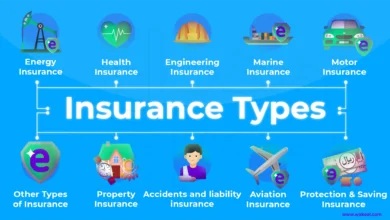What Type of Business Insurance Can Save Your Business?

Running a business isn’t just about making money; it’s about keeping things safe when the unexpected happens. Imagine this: you’re growing your business, gaining customers, and things are looking great—then a lawsuit, a natural disaster, or a cyberattack hits out of nowhere. That’s where business insurance comes in, like a safety net for all your hard work.
Business insurance isn’t just one-size-fits-all; it’s a collection of policies tailored to cover specific risks, from property damage and accidents to employee issues and data breaches. Whether you’re a small business owner or managing a growing enterprise, understanding the right kind of insurance for your needs is crucial. In this guide, we’re diving into the essential types of business insurance that could end up saving your business when it matters most. Let’s explore how you can protect what you’ve worked so hard to build.
What Is Business Insurance?
Business insurance is a broad term that refers to various types of insurance policies designed to protect businesses from financial losses due to accidents, lawsuits, property damage, employee-related risks, and other unforeseen incidents. Each type of business insurance covers specific risks, allowing business owners to customize their policies based on their unique needs.
The key to choosing the right coverage is understanding the specific risks your business faces and knowing which policies are designed to mitigate those risks.
Why Is Business Insurance Necessary?
There are several reasons why business insurance is essential:
- Protection from Financial Losses: Insurance shields your business from significant financial losses, which could otherwise lead to bankruptcy.
- Compliance: Some types of insurance are legally required depending on the business type, location, and the number of employees.
- Employee Security: Certain insurance policies help safeguard your employees, promoting a secure work environment.
- Credibility and Reputation: Insurance reassures clients, investors, and partners, as it shows your business is responsible and prepared for emergencies.
Let’s now look at specific types of business insurance that can save your business.

General Liability Insurance
What It Covers: General liability insurance protects businesses from claims related to bodily injury, property damage, and personal injuries, such as slander or libel, that might occur on your business premises.
Who Needs It: Virtually all businesses should consider general liability insurance, especially those that interact with customers or operate in public spaces. For instance, retail stores, restaurants, and office spaces benefit from this coverage.
Example Scenario: A customer slips and falls in your store, resulting in medical expenses. General liability insurance would cover those costs and potentially any legal fees if the customer decides to sue.
Cost: Depending on the industry, general liability insurance can range from $400 to $1,500 annually for small businesses. Riskier industries may face higher premiums.
Professional Liability Insurance
What It Covers: Also known as Errors and Omissions (E&O) insurance, professional liability insurance protects against claims of negligence, misrepresentation, or mistakes in professional services. It is particularly useful for businesses offering expert advice, consultation, or professional services.
Who Needs It: Professionals such as doctors, lawyers, accountants, consultants, and architects, among others, typically require professional liability insurance.
Example Scenario: A client claims they lost money because of advice you provided. Professional liability insurance would cover the legal costs and any settlements.
Cost: E&O insurance costs vary widely, with premiums ranging from $500 to $3,000 per year, depending on the profession and level of risk.
Property Insurance
What It Covers: Business property insurance covers damage or loss to a company’s physical assets, including buildings, equipment, furniture, inventory, and other property, due to events like fire, theft, vandalism, and certain natural disasters.
Who Needs It: Any business that owns or leases property, equipment, or inventory should consider property insurance.
Example Scenario: A fire damages your office, destroying computers, furniture, and other valuables. Property insurance would cover the costs to repair or replace the damaged items.
Cost: Premiums vary based on the value of your property, the type of business, and location, with typical costs ranging from $500 to $2,500 annually for small businesses.
Workers’ Compensation Insurance
What It Covers: Workers’ compensation insurance covers medical expenses, rehabilitation costs, and lost wages if an employee is injured on the job. In many places, this type of insurance is mandatory for businesses with employees.
Who Needs It: All businesses with employees, particularly those in industries with higher risks, like construction or manufacturing, must have workers’ compensation insurance.
Example Scenario: An employee falls off a ladder while working, requiring surgery and several months of recovery. Workers’ compensation insurance would cover the employee’s medical bills and partial lost wages.
Cost: Premiums depend on industry risk and payroll size, but small businesses generally pay around $0.75 to $2.74 per $100 of payroll.
Commercial Auto Insurance
What It Covers: Commercial auto insurance provides coverage for vehicles owned or used by a business, protecting against accidents, property damage, and bodily injury. Coverage may include liability, collision, comprehensive, and uninsured motorist protection.
Who Needs It: Any business that owns or uses vehicles for business purposes, such as delivery services, transportation companies, or businesses with company cars, needs commercial auto insurance.
Example Scenario: A delivery van owned by your business is involved in an accident, causing damage to another vehicle. Commercial auto insurance would cover the repair costs and any liability claims.
Cost: Premiums typically range from $700 to $1,200 annually per vehicle, depending on vehicle type, usage, and location.
Business Interruption Insurance
What It Covers: Business interruption insurance compensates for lost income if a business cannot operate due to events like fires, natural disasters, or other disruptions. It often covers lost profits, fixed costs, and temporary relocation expenses.
Who Needs It: Any business that relies heavily on physical premises or specific equipment to operate may benefit from business interruption insurance.
Example Scenario: A fire forces your business to close for repairs for three months, resulting in lost income. Business interruption insurance would cover your lost revenue and help with ongoing expenses, like employee wages.
Cost: The cost depends on factors like business type, revenue, and coverage limits, with premiums usually starting around $500 annually for small businesses.
Cyber Liability Insurance
What It Covers: Cyber liability insurance protects businesses from losses due to data breaches, cyberattacks, and other digital threats. It covers costs such as customer notification, credit monitoring, legal fees, and reputational damage.
Who Needs It: Any business handling sensitive customer information, payment data, or employee records online should consider cyber liability insurance. This is particularly relevant for e-commerce businesses and companies in finance or healthcare.
Example Scenario: Hackers breach your systems, stealing customer information. Cyber liability insurance would cover legal costs, notification expenses, and other related costs.
Cost: Premiums vary based on business size, risk, and coverage, but small businesses often pay between $1,000 and $7,500 annually.
Product Liability Insurance
What It Covers: Product liability insurance protects businesses from claims related to injuries or damages caused by products they manufacture, distribute, or sell.
Who Needs It: Any business that manufactures or sells physical products should consider product liability insurance.
Example Scenario: A customer is injured by a defective product you sell and files a lawsuit. Product liability insurance would cover legal costs and potential settlements.
Cost: The cost of product liability insurance varies depending on the product type and business size, ranging from $400 to $3,000 per year.
Employment Practices Liability Insurance (EPLI)
What It Covers: EPLI protects businesses from claims related to employment practices, such as wrongful termination, harassment, discrimination, and retaliation.
Who Needs It: Any business with employees can benefit from EPLI, especially those in high-turnover industries.
Example Scenario: An employee files a lawsuit claiming discrimination. EPLI would cover legal fees, settlements, or judgments.
Cost: EPLI costs vary, with small businesses generally paying between $800 and $3,000 annually.

Choosing the Right Insurance for Your Business
Selecting the right combination of insurance policies requires a careful assessment of the specific risks associated with your business:
- Industry-Specific Risks: Different industries face unique risks, from accidents on construction sites to cyber threats in tech companies.
- Business Size: The scale of your operations affects insurance needs; larger businesses often require more comprehensive coverage.
- Location: Physical risks like weather-related incidents vary based on location, affecting the type and level of property insurance required.
- Employee Base: A larger workforce generally necessitates additional insurance, such as workers’ compensation and EPLI.
Bundling Insurance Policies: Business Owner’s Policy (BOP)
For small and medium-sized businesses, bundling insurance policies into a Business Owner’s Policy (BOP) can be cost-effective. A BOP typically includes general liability, property insurance, and business interruption insurance. It allows businesses to get essential coverage at a discounted rate compared to purchasing separate policies.
Who Needs It: Small businesses, particularly those with physical locations, benefit from a BOP, which simplifies insurance management and reduces costs.
Cost: BOP premiums vary based on business type and size but often range from $500 to $2,500 annually.
Conclusion
In conclusion, having the right type of business insurance can indeed save your business from potential financial ruin. Each type of insurance provides protection against different types of risks, ensuring that your business remains resilient in the face of accidents, lawsuits, employee injuries, and more. By carefully assessing your specific business risks and choosing appropriate policies, you can secure the future of your company and foster a safe, trustworthy environment for employees, clients, and partners alike. Business insurance is not just a financial decision but a critical safeguard to ensure that, come what may, your business has the protection it needs to thrive.

